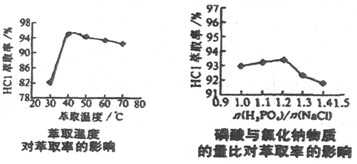The right to pursue happiness is issued to us all with our birth, but no one seems quite sure what it is.
A holy man in India may think  that happiness is in himself. It is in needing nothing from outside himself. If wanting nothing, he lacks nothing. We westerners, however, are taught that the more we have from outside ourselves, the happier we will be, and then we are made to want. We are even told it is our duty to want. Advertising, one of our major industries, exists not to satisfy these desires but to create them---and to create them faster than any man’s money in his pocket can satisfy them. Here, obviously someone is trying to buy the dream of happiness and spending millions upon millions every year in the attempt. Clearly the happiness-market is not running out of customers.
that happiness is in himself. It is in needing nothing from outside himself. If wanting nothing, he lacks nothing. We westerners, however, are taught that the more we have from outside ourselves, the happier we will be, and then we are made to want. We are even told it is our duty to want. Advertising, one of our major industries, exists not to satisfy these desires but to create them---and to create them faster than any man’s money in his pocket can satisfy them. Here, obviously someone is trying to buy the dream of happiness and spending millions upon millions every year in the attempt. Clearly the happiness-market is not running out of customers.
I doubt the holy man’s idea of happiness, and I doubt the dreams of the happiness-market, too. Whatever happiness may be, I believe, it is neither in having nothing nor in having more, but in changing --- in changing the world and mankind into pure states.
To change is to make efforts to deal with difficulties. As Yeats, a great Irish poet once put it, happiness we get for a lifetime depends on how high we choose our difficulties.
It is easy to understand. We even demand difficulty for the fun in our games. We demand it because without difficulty there can be no game. And a game is a way of making something hard for the fun of it. The rules of the game are man-made difficulties. When the player ruins the fun, he always does so by refusing to play by the roles. It is easier to win at chess if you are free, at your pleasure, to cast away all the rules, but the fun is in winning within the rules.
The same is true to happiness. The buyers and sellers at the happiness-market seem to have lost their sense of the pleasure of difficulty. Heaven knows what they are playing, but it seems a dull game. And the Indian holy man seems dull to us, I suppose, because he seems to be refusing to play anything at all.
but it seems a dull game. And the Indian holy man seems dull to us, I suppose, because he seems to be refusing to play anything at all.
The western weakness may be in the dreams that happiness can be bought while eastern weakness may be in the idea that there is such a thing as perfect happiness in man himself. Both of them forget a basic fact: no difficulty, no happiness.
小题1:Who shares the same idea of happiness with the author?
A.The Indian holy man
B.The great Irish poet Yeats
C.Advertisers
D.The buyers and sellers at the happiness-market小题2:What does “happiness-market” mean in the second paragraph?
A.It means a place in which people can buy things happily
B.It means a market which lacks happy customers
C.It means a pure state for the world and mankind
D.It means a market where people try to buy happiness with money.小题3:According to the passage, which of the following is Right?
A.The Indian holy man is much happier than westerner.
B.The westerners understand happiness better than the Indian holy man.
C.There is no fun without playing by the rules
D.Both the eastern weakness and western weakness are the same.

 NaH2PO4+HCl
NaH2PO4+HCl  HCl·S △H<0
HCl·S △H<0 H3PO4·S △H<0
H3PO4·S △H<0

 that happiness is in himself. It is in needing nothing from outside himself. If wanting nothing, he lacks nothing. We westerners, however, are taught that the more we have from outside ourselves, the happier we will be, and then we are made to want. We are even told it is our duty to want. Advertising, one of our major industries, exists not to satisfy these desires but to create them---and to create them faster than any man’s money in his pocket can satisfy them. Here, obviously someone is trying to buy the dream of happiness and spending millions upon millions every year in the attempt. Clearly the happiness-market is not running out of customers.
that happiness is in himself. It is in needing nothing from outside himself. If wanting nothing, he lacks nothing. We westerners, however, are taught that the more we have from outside ourselves, the happier we will be, and then we are made to want. We are even told it is our duty to want. Advertising, one of our major industries, exists not to satisfy these desires but to create them---and to create them faster than any man’s money in his pocket can satisfy them. Here, obviously someone is trying to buy the dream of happiness and spending millions upon millions every year in the attempt. Clearly the happiness-market is not running out of customers. but it seems a dull game. And the Indian holy man seems dull to us, I suppose, because he seems to be refusing to play anything at all.
but it seems a dull game. And the Indian holy man seems dull to us, I suppose, because he seems to be refusing to play anything at all.